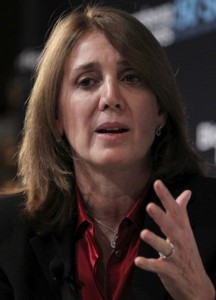The ‘Fighting Genius’ of 9/11
Daniel Mark Lewin (1970-2001) was born in Denver, Colorado. He spent his early childhood there, playing sports and the violin, and programming his first Apple II computer when he was just nine years old. His family made aliyah to Israel when he was 14. Living near Jerusalem, Lewin found school of little challenge and often skipped class to work out at a gym. It wasn’t long before he won the Mr. Teenage Israel bodybuilding competition. Not surprisingly, he joined the IDF’s elite Sayeret Matkal commando unit. After four years as an officer – attaining the rank of captain – Lewin went to study at Technion, while also working for IBM. From there, he got a full scholarship to MIT and studied towards a PhD in computer science. During this time, he came up with a new algorithm that had the potential to revolutionize the nascent internet. Others didn’t see it that way, and felt his concept wouldn’t go very far. Despite the opposition, he teamed up with one of his professors and started a new company, Akamai Technologies. In March of 1999, a series of events caused a surge in internet activity that crashed many websites. It appeared that only the sites served by Akamai had survived. Akamai Technologies became an overnight sensation. A successful IPO shortly after made Lewin a billionaire. On September 11, 2001, Lewin boarded American Airlines flight 11. According to air traffic control recordings, Lewin attacked two of the terrorists on board, but was surprised by a third knife-wielding terrorist from behind. He was killed about 30 minutes before the plane struck the North Tower of the World Trade Center. Lewin therefore carries the tragic distinction of being the first victim of 9/11. He left behind a wife and two small children. At just 31 years of age, he was expected to make big waves, with some predicting he could have become an Israeli prime minister (like fellow Sayeret Matkal graduates Barak and Netanyahu), or one of the world’s true tech titans. His Akamai Technologies is still a multi-billion dollar internet giant today. In his honour, Cambridge, Massachusetts has a Danny Lewin Square and Park, and the annual award for best student paper on computing is named after him, too.
Words of the Week
Long after we have forgiven you for killing our sons, we will be working to forgive you for turning our sons into killers.
– Golda Meir



